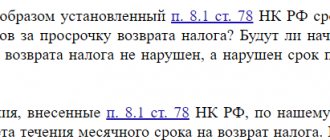Renting an apartment is accompanied by the payment of a deposit to the owner in the amount of double the tariff.
Half of the amount covers the monthly living expenses, the other half remains as a deposit.
Let's look at all the nuances of what a deposit is when renting an apartment: why it is needed, how not to pay it, how to return the money through legal means.
What does a deposit mean when renting an apartment?
The deposit for renting/renting an apartment is monetary compensation to the landlord, which will guarantee the fulfillment of the obligations of the contract for each of the parties. This definition is indicated in Article 329 of the Civil Code of the Russian Federation.
In other words, this is the amount of money that will remain with the owner if the tenant violates the terms of the agreement.
In accordance with Article 1064 of the Civil Code of the Russian Federation, the deposit is an insurance payment in the event of damage of the following kind:
- conscious or unconscious damage to property;
- destruction of residential premises - changes in internal structures
- theft, organization of redevelopment;
- damage to furniture or household appliances.
Compensation is also due to neighbors if they were damaged by the responsible tenant: due to flooding, or other illegal actions.
The deposit amount is usually equivalent to one month's rent . A more specific value may be stipulated by the parties.
Lease agreement with security deposit: what should be specified
Execution of such a document is highly desirable if home electronics, household appliances, high-quality furniture remain in the living space, or if the apartment is being rented out after expensive renovations.
However, an agreement with a deposit is signed even in cases where “bare walls” with working plumbing are leased
(in case of sudden disappearance of residents)
. As a rule, the document records:
- information about each party;
- general information about the residential space for rent;
- monthly payment amount;
- the amount of the deposit paid before moving in;
- duties and responsibilities of the landlord and tenant;
- validity period of the signed agreement;
- conditions and possibilities for terminating the contract.
The payment of the deposit, as well as the subsequent transfer of the agreed amounts as monthly payment, is issued in the form of a receipt. The tenant must require a receipt and keep it until the end of the rental period, since in controversial cases the document will become the only confirmation of payment.
The agreement should only be concluded in writing, even if the landlord is a good friend, and the temptation is great to avoid unnecessary bureaucracy.
If housing is rented for a period of more than a year, the transaction must also be officially registered with Rosreestr, as well as the residents must be registered. If the last rule is not followed, the owner may face a fine.
Why do you need a deposit when renting an apartment?
There are no requirements for the transfer of collateral at the legislative level . The tenant can simply pay an additional month or more of accommodation. If the owner does not object, the contract can be signed on the basis of such conditions. In practice it is different.
The security deposit is an amount that the landlord is guaranteed to receive if the tenant violates the terms of the contract.
The security deposit confirms the seriousness of the property owner’s intentions to rent it out for a long time. This allows the tenant to hope that the agreements will actually be fulfilled.
Why do you need collateral?
The security deposit required when renting a property is often called a security deposit in advertisements. This amount insures the owner against incorrect actions of the tenant. For example, such actions could be:
- damage to property, including unconscious damage, i.e. random;
- damage to the apartment - for example, this could include illegal redevelopment, alteration of internal structures;
- theft of property - equipment, furniture, etc.;
- wear and tear or damage to property.
Many people regard the deposit as an additional waste of money. However, its advantage for the tenant is that it confirms the seriousness of the apartment owner’s intentions to rent it out for a long period.
As already mentioned, the law does not impose a requirement to pay a security deposit on the tenant. In other words, he has the right to agree with the landlord and pay only for the duration of his stay. If the owner of the living space agrees to these conditions, the contract is signed without a deposit.
Transfer of collateral: step-by-step instructions
After searching for a suitable housing option, if the tenant is interested in the property, he can advance the transaction to ensure that he receives the keys to the apartment. However, this advance is not collateral.
The payment is transferred towards the total amount of the transaction (an additional amount for 1 month of rent) so that the housing does not go to another tenant.
In the future, your interaction with the landlord consists of the following stages:
- On the day of the transaction, a meeting takes place between the owner and the tenant. An agreement is concluded through a realtor or him.
- Before transferring money and signing papers, it is necessary to inspect the apartment for the serviceability of communication networks, existing household appliances, the condition of furniture - water taps, meters, window handles, door lock, TV, stove, washing machine, etc.
- Carefully study the transfer and acceptance certificate: it should describe the list of transferred items of furniture, interior, equipment, dishes, and other property. If there are defects in any of the objects, this must be specified separately in writing.
- If the inventory corresponds to the actual condition, there are no more obstacles to signing the agreement. At this moment, a deposit and a monthly payment (two equal amounts) are also transferred, and the realtor’s services are paid (usually their amount is similar to the rent).
- It is preferable, but not mandatory, to prepare receipts for the transfer and receipt of funds. This fact will be additional evidence of receipt of the collateral and execution of the transaction.
- From this moment on, official contractual relations begin.
After the end of the rental period, when deciding to move out of the apartment, the owner must transfer the entire amount of the deposit on that day.
The tenant must hand over the apartment in the same condition in which it was received, with working appliances, furniture, washed windows and floors.
The landlord does not return the deposit - what to do?
It happens that all the requirements are met, the owner is warned in time about the need to look for new tenants, but there is reason to believe that he is trying by all means to avoid returning the deposit. He makes unscheduled visits to the apartment, finds fault with the smallest stains and abrasions, proves that the toilet tank worked much more efficiently, and the washing machine now does not turn on the first time.
Without proper preparation, it is difficult to resist this, but it is still worth extracting the contract, calmly arguing your position and declaring your readiness to involve a lawyer and file a claim in court.
In order to stock up on facts and evidence, you should take the time to briefly describe the condition of the apartment in the contract, inspect the property very carefully and take photos of obvious flaws, and also ask the owner of the home to certify these photos with his signature. If, after moving in, something previously unnoticed comes to light, you should not remain silent, but call the owner of the property for additional negotiations and reach new agreements. With such a serious approach, getting the amount back will be much easier. In situations where the property is really damaged, unfortunately, you will have to say goodbye to the money.
Obvious improvements made by tenants that were not to the landlord's taste often become a stumbling block.
To avoid this, all repair work must be coordinated in advance, and when changing, for example, a door handle, be sure to keep the same one.
Bail amount
Before registering a deposit in an apartment rental agreement, you need to discuss its amount with the landlord. There are no requirements for the size of the deposit, but in most cases the deposit is equal to the amount of rent established for one month of residence .
The future tenant must immediately prepare double payment and take into account the realtor’s remuneration if the search for an apartment was carried out with his help.
There is no need to pledge an amount that will exceed the monthly rent . If such demands are made by the owner, you should be wary of whether the transaction will be fraudulent.
Commission for renting an apartment
One more point needs to be clarified before completing the transaction: what is the commission when renting an apartment.
The commission is a payment that is transferred to the realtor once, taking into account the rules of the agency and the agreements reached. It is paid by the employer or landlord - usually depending on who contacted the agency.
There is a trend in the Russian real estate market according to which the commission fee is the responsibility of the tenant. But most often this rule applies to economy class or standard housing. The commission fee for housing of a higher category is often paid by the owner himself.
Receipt for renting out premises
According to Article 329 of the Civil Code of the Russian Federation, the parties entering into a lease agreement independently negotiate all the conditions relating to this issue.
In other words, there is no clear legislative regulation of this situation. Therefore, it is important to indicate all points in as much detail as possible.
The receipt is a separate document, an addition to the agreement. It indicates the details of the parties - the tenant and the lessor, specified in the lease agreement, the subject of the receipt - the amount of the deposit (in numbers and in words) and the date of the transaction.
The conditions regarding the return and non-refund of the deposit are indicated:
- The payment terms specified in the contract may relate to the deposit. That is, violation of the landlord’s requirements regarding rent may be the reason for non-return of payment.
- The security deposit is a kind of guarantee for the owner that the tenant will treat the property with care. Cases of damage to the rental property or the housing of neighbors, depending on the terms of the contract, may be the reason for the retention of funds by the mortgagee.
- In the contract, the lessor may specify requirements for the minimum rental period. If the tenant wishes to terminate the contract before the specified period, the deposit will remain with the owner of the property. This money will compensate for the time spent searching for new tenants.
- If the contract specifies utility services that the tenant must pay, then violation of the terms may be grounds for withholding the security deposit. This must be indicated on the receipt.
Attention! If the deposit will be paid in installments, a separate receipt must be drawn up for each payment, indicating the amount transferred to the owner.
How to correctly reflect the collateral in the contract
The greatest risk is that the tenant will move out and transfer the apartment to the owner, but the security deposit will not be returned to him.
This may happen in the following cases:
- with malicious intent;
- due to compensation for damage caused by the tenant to property.
Therefore, initially it is necessary to carefully study the subject of the contract, the act of acceptance and transfer of property, and the criteria for assessing the condition of the apartment after occupancy. The conditions are described in a separate clause in the agreement.
It is important that the following nuances are provided:
- the security deposit cannot be used by the owner for personal purposes;
- The deposit must be kept freely accessible by the landlord so that at the time of termination of the contract the security deposit is returned in full.
The deposit can be used to pay off compensation for damage or to pay for rent that was not paid on time . The procedure for accepting the premises must be spelled out in detail. The return certificate is the main document confirming the absence of claims by the owner against the tenant.
The contract may stipulate the following condition: if the tenant has lived in the apartment for less than 11 months, the security deposit is not refunded. This way the owner is insured in case of the tenant’s early departure.
But all these points must be reflected in the agreement.
What is a rental security deposit?
The security deposit is a sum of money that residents pay to the owner of the premises. In essence, it is a guarantee of insurance of the owner’s property in case of unforeseen circumstances, to compensate for damage that may be caused by unscrupulous tenants, including losses that will be associated with the presence of arrears in payment for housing and communal services.
Attention! The security deposit only guarantees compensation for damage if it is caused by the actions of the residents. It is not insurance in case of, for example, a natural disaster - fire or flood.
Lease agreement
The norms of the Civil Code of the Russian Federation do not define such a concept as “security deposit” . But the possibility of providing for it in the terms of the agreement is determined by Article 329 of the Civil Code of the Russian Federation, as a way to ensure the fulfillment of obligations.
It would be correct to indicate specific wording in the content. It may sound like this: “The tenant pays the landlord a security deposit in the amount (a specific amount is indicated) as liability insurance in case of damage to the housing and the property of the owner located in it.
Upon expiration of the contract, if the tenant conscientiously fulfills its obligations specified in the agreement, the landlord is obliged to return the deposit to the tenant in full.”
The rest of the contract is drawn up according to the general rules. It contains information about:
- sides;
- indoors;
- intended use;
- payment amount.
The agreement or annexes to it must contain a list of all the owner’s property located in the apartment.
We do not recommend completing the documents yourself. Save time - contact our lawyers by phone:
8 (800) 302-76-94
Amount to be deposited
The amount of the deposit is determined by the property owner. The amount is calculated in each specific case separately. It is often equal to one month's rent, but can also be calculated based on the value of the home and the contents in it.
Important! The transfer of funds is carried out by crediting funds to the owner’s current account. Confirmation of receipt of the deposit may be a receipt or bank account statement.
Is it possible to withdraw without a deposit?
The law does not oblige the parties to the lease to provide a security deposit as a condition of the contract . For this reason, no grounds have been established for its presence or absence. In practice, this type of guarantee occurs when making a transaction in relation to expensive housing and property. Owners of cheap apartments with a minimum set of property or its complete absence do not require a deposit.
Is the money refunded?
The procedure for returning the deposit is provided for by the terms of the agreement. The basis for this is the expiration of the lease term, a mandatory condition is to ensure the safety of the leased property. Housing and all property of the owner must be returned in the same form in which they were transferred to the tenant. It would be correct to issue a refund of the deposit with a receipt from the tenant.
Three legal ways to get your deposit back
If you are not getting your security deposit back when you signed your lease, there are 3 legal ways to get your money back. It is important to understand that you must have reasons for this.
Therefore, it is necessary to collect and store documents such as:
- lease contract;
- act of acceptance and transfer of premises;
- receipt for receipt of collateral.
The apartment return certificate is drawn up on the last day of stay. If the landlord does not make contact, the transfer and acceptance certificate can be issued unilaterally.
One of the original documents can be sent to the owner by registered mail with acknowledgment of receipt, which can subsequently also be part of the evidence base for the transaction.
Method 1. If there is damage to property
The best solution in such a situation would be to eliminate the damage on your own or refuse the deposit. Balance the costs associated with repairing furniture or household appliances with the amount of the security deposit.
If the owner evades the terms of the contract, it is still necessary to try to resolve the problem peacefully.
Method 2. If no damage is done
If the tenant did not cause any damage, but the landlord still withholds the security deposit, citing, for example, lack of money, you can do the following:
- threaten to contact law enforcement or tax authorities - often owners do not particularly want to pay taxes, so this method may work;
- intimidate that you will go to court.
Method 3. If the owner does not get in touch
Is the deposit returned in this case and how to do it correctly?
It is necessary to draw up an act of return of property, send it to the owner by registered mail with notification, and then go to court, attaching to the statement of claim all the documents and evidence that you currently have.
It can also be photographs of rooms, furniture, and household appliances.
Actions if you have a receipt
There is another way to return the deposit for renting an apartment by receipt. A receipt is proof that funds were received by the counterparty .
Even if the lease agreement has not been executed and signed, and a receipt has been received, the owner of the apartment must comply with the requirements for the return of the security deposit.
Pre-trial settlement involves resolving the issue through negotiations. The owner of the apartment may hide income from renting out housing, so concluding an agreement is not beneficial for him.
If such a trend is emerging, it is necessary to make it clear to the owner of the apartment that you can contact the tax office, and then the amount of compensation will be much higher than the deposit.
If the issue cannot be resolved peacefully, you will have to go to court. As an evidence base, the receipt is of fundamental importance. The statute of limitations for such cases is 3 years. The keys to the apartment should not be handed over until the issue has been resolved.
How to rent an apartment without a deposit
This scenario of events does not contradict the law in any way, including in 2021. The parties can choose their own ways of concluding agreements - with or without the condition of making a security deposit .
In practice, a deposit is taken if the property is well equipped, has comfortable furniture, expensive interior items, and modern household appliances (TV equipment, washing machine, electric kettle, microwave oven, refrigerator).
It is clear that the owner of the apartment is interested in financial guarantees for maintaining the situation in good condition.
If the counterparty rents out “bare walls”, the premises have not been renovated for a long time, there is old furniture, minimal equipment, the tenant may refuse to pay a deposit.
As an argument, there is a completely reasonable circumstance: there is nothing to insure in such a situation . If the owner of the apartment does not object, the transaction can be completed without paying a deposit, only with the signing of an agreement.
○ When the security deposit is returned.
The conditions for the return of insurance amounts must be provided for in the agreement. The parties may, at their own discretion, determine the circumstances under which funds will be returned, provided they do not contradict the law. However, there are general conditions that provide for the return of funds to the tenant.
Both the security deposit and the deposit must be returned to the tenant if:
- He promptly warned the apartment owner in writing about his intention to move out early (as a rule, this must be done a month in advance).
- Upon completion of the lease relationship, there are no mutual claims between its participants.








